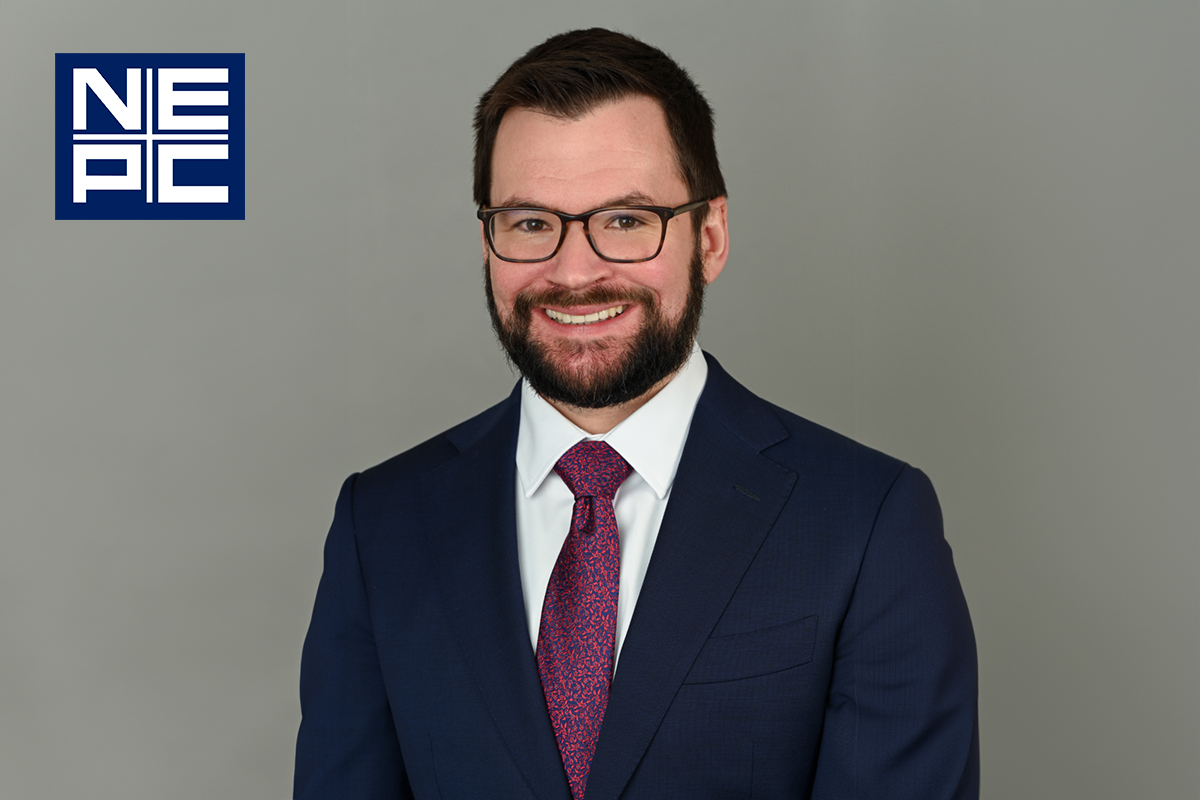InvestmentNews: Managed Accounts Have Hit a Wall in DC Plans, Finds Survey
NEPC’s DC Plan Trends and Fee Survey data was recently featured in an InvestmentNews article which highlighted our findings on the increased demand for customized solutions in pension plans and the shift towards passive management in target-date funds. View the full article on InvestmentNews’ site here.
A new report from NEPC offers new insights in the workplace retirement savings space, particularly when it comes to the use of managed accounts and target-date solutions.
. . .
“We believe managed account providers can and do construct efficient investment portfolios, but plan providers, as fiduciaries, should push for improved outcomes for their plan participants through negotiating lower fees and seeking to better align the interests of the managed account providers with those of participants,” Mikaylee O’Connor, principal and head of defined contribution solutions at NEPC, said in a statement revealing the results.
. . .
To improve uptake among plan members, she suggested sponsors could offer a subscription-based model with lower base fees for less engaged participants, while providing more investment options for those more actively involved through tiered subscriptions.
“This approach allows for flexibility in costs and features, catering to diverse participant needs and engagement levels,” she said.
. . .
“Analyzing this year’s survey results through a long-term lens, we are excited by the ample opportunity for industry innovation, personalization, and increased accessibility in the defined contribution marketplace, especially across areas like alternative investments, managed accounts, TDFs, and retirement income solutions,” O’Connor said.
Click here to read the full article on the InvestmentNews site.
NEPC Survey Finds Managed Accounts are Due for a Transformation
19th annual survey results emphasize growing need for more personalized retirement solutions
BOSTON, MA – MARCH 4, 2025 – NEPC, LLC, one of the industry’s largest investment consulting firms, today published the 19th annual edition of its Defined Contribution (DC) Plan Trends and Fee Survey, which examines emerging investment trends, including the shift toward passive investments and the increasing need for managed accounts to offer more personalized retirement solutions.
Potential in managed accounts
While over the last 20 years, NEPC has seen an increase in DC plans offering managed accounts, that trend has stagnated in the past 3-5 years – even starting to decline in 2025. This year’s survey found that nearly half of respondents (46%) offer managed accounts, though only 9% of participants are utilizing them.
The softening in managed accounts adoption highlights the need for a transformation in the business model as plan sponsors increasingly recognize that the current model, prevalent in many DC plans, is imbalanced, with providers reaping greater benefits than participants.
“We believe managed account providers can and do construct efficient investment portfolios, but plan providers, as fiduciaries, should push for improved outcomes for their plan participants through negotiating lower fees and seeking to better align the interests of the managed account providers with those of participants,” according to Mikaylee O’Connor, Principal, Head of Defined Contribution Solutions.
“A subscription-based model could align business incentives more closely with improved participant outcomes. By implementing a lower base fee for less engaged participants, providers can offer an entry-level option, while more engaged participants could access expanded investment options through tiered subscription offerings. This approach allows for flexibility in costs and features, catering to diverse participant needs and engagement levels.”
Growing appetite for passive
This year’s survey results also reveal that Target Date Funds (TDFs) have maintained their presence as a default retirement investment vehicle and continue to shrink the core menu, with 97% of survey respondents offering them, totaling $161 billion in TDF assets.
Over the last five years, there has been a significant shift in appetite for passive TDFs over active. This year’s survey found that 35% of survey respondents offer active TDFs, down 32% from 2020, when 67% of respondents offered active TDFs.
In comparison, most plans today (54%) offer passive TDFs, as assets in passive TDFs continue to annually outpace active. Only 11% of respondents offer a blend of both active and passive.
TDFs continue to be especially attractive for participants under the age of 35, as 86% of TDF investors are 100% invested in TDFs, in comparison to participants over the age of 65, where only 58% are 100% invested.
“Analyzing this year’s survey results through a long-term lens, we are excited by the ample opportunity for industry innovation, personalization, and increased accessibility in the defined contribution marketplace, especially across areas like alternative investments, managed accounts, TDFs and retirement income solutions,” added O’Connor.
About NEPC’s 19th Annual Defined Contribution (DC) Plan Trends and Fee Survey
The survey explores current investment trends, features, and innovations in key sectors, as well as how these plans have developed over time. Respondents to the 2024 survey include 137 clients representing $408 billion in aggregate assets and 3.2 million plan participants.
NEPC’s Defined Contribution (DC) Practice team will discuss the survey’s findings during a webinar on March 6, 2025. Those interested in hearing how NEPC is advising plans can register for the webinar here.
The 19th Annual Defined Contribution (DC) Plan Trends and Fee Survey results can be downloaded below:
About NEPC, LLC
NEPC, LLC is a leading investment consultant, private wealth advisor, and OCIO provider, serving over 400 retainer clients and $1.7 trillion in total assets. Combining a proprietary investment team dedicated to the long-term challenges facing investors with our client-centric model, NEPC builds forward-looking investment portfolios for institutional investors, ultra-high-net-worth individuals, and families. To learn more visit nepc.com.
Media Contact:
Prosek Partners
[email protected]
PlanSponsor: Fiduciary Risk Continues to Pose Barrier to Mass Adoption of Alts in DC Plans
NEPC Partner, Bill Ryan, was recently quoted in a PlanSponsor article to discuss how fiduciary risk, particularly the potential for litigation due to higher fees associated with private equity investments, continues to be a significant barrier for plan sponsors considering alternative investments in defined contribution plans. View the full article on PlanSponsor’s site here.
Many defined contribution plan sponsors have concerns about offering alternative investments in their 401(k) menu, but a supportive regulatory environment may shift the tide.
. . .
Bill Ryan, a partner in and defined contribution leader at NEPC, argues that the industry has already administratively solved for the issue of incorporating alts into DC plans. For example, he said Washington has, for the past five years, put private equity into the state’s DC plan through target-date funds, and the University of California Retirement Plan historically had private equity target allocation in a target-risk fund.
“Most large-cap active growth managers have less than 5% in a private placement or private equity in their mutual funds already, so private equity and private markets are in DC plans and are fully functioning,” Ryan says.
However, Ryan says there is an “asymmetric risk” to the fiduciary when offering any sort of alternative investment option because the reported fees tend to be the highest when the investment performs the best.
. . .
“It’s not that we can’t administratively deliver private markets,” Ryan says. “It’s these ancillary things that are hangnails that intimidate plan sponsors from doing it.”
Ryan emphasizes that higher fees are not necessarily a bad outcome for participants, but it can be risky for the plan sponsors because such fee disclosure often leads to litigation.
. . .
Overall, Ryan says private markets are in DC plans today, and more adoption is anticipated.
“Access is extremely important, especially with a very [pro-alternatives] administration, and we anticipate an uptick in flows and adoption, but it should be mindful, with the appropriate governance around it,” he says.
Click here to read the full article on the PlanSponsor site.
Forbes: Tough Markets, Smart Moves: How Investors Are Reallocating Capital
NEPC was mentioned in a recent Forbes article to highlight Sarah Samuels’ warning about continued valuation declines in private equity and venture capital, along with concerns over mounting liquidity pressures. View excerpts below or read the full article on the Forbes site here.
“In a time of rising market uncertainty, sophisticated investors are making strategic shifts in their portfolio allocations to navigate an evolving investment landscape. After two years of double-digit outperformance in public equities, it is not surprising that investors are looking to increase their exposure to private markets, seeking diversification and perceived stability. However, this trend is not without risks, as private market valuations can create an illusion of security in an environment where liquidity constraints may be mounting.”
. . .
“Additionally, consulting firms like NEPC have warned investors about potential valuation declines in private equity and venture capital. Many firms have avoided markdowns by opting for insider rounds and bridge financing to maintain valuations, but mounting liquidity pressures remain a concern.”
Infrastructure Investor: ‘It’s Really Important Investors are Aware of the Profile’, LP Consultant Warns
NEPC’s Matt Ritter was recently featured in an Infrastructure Investor article discussing how he is not against funds that are ‘more private equity-like’, as long as LPs understand the risk. View excerpts below or read the full article on the Infrastructure Investor site here.
Investors in the infrastructure space need to be aware of the risks of the asset class as they look to meet the tailwinds of the energy transition and digital infrastructure, Matthew Ritter, partner and head of real assets at US-based LP consultant NEPC, told Infrastructure Investor.
. . .
“I think there’s really attractive opportunities for investing in infrastructure today across the board, particularly in some of these themes, ” he said. “At the same time though, I think it’s really important that investors be aware of the risk profile of what they’re investing in.
“There are strategies that are much more at the secure end of the spectrum with long-term contracted cashflows with credit counterparties, and then there’s strategies that are a little bit more private equity-like. I think there are attractive opportunities across that spectrum, but it’s important to make sure that you understand what you’re investing in and that it aligns with your goals and objectives.”
. . .
“As these themes have garnered a lot of interest, there’s been a lot of new entrants or managers launching new strategies to capitalise on these themes, ” Ritter outlined. “Some of which may call themselves infrastructure, but might actually look more like a private equity strategy in terms of the underlying risk and return profile.
“So, while total return is something we are mindful of, of course we want to be thinking about the risk that you’re taking. Is a strategy really taking on commercialisation or technology risk in a way that is not suitable for an infrastructure portfolio? Those are things we’re thinking about as well.”
. . .
“A lot of commitments were made last year, but there is definitely a subset of investors that, just by their exposure through other private markets – whether it’s real estate, private equity or other areas – there’s been decreased liquidity in the market and therefore they’re getting fewer dollars back, ” he reasoned. “That has certainly constrained their ability to make new investments to some degree.”
Click here to read the full article on the Infrastructure Investor site.
Institutional Investor: NEPC’s Sarah Samuels Expects ‘More Pain to Come’ in PE, VC
NEPC’s Sarah Samuels was recently featured in an Institutional Investor article discussing the challenges in private equity and venture capital, predicting more struggles ahead due to falling valuations and investors becoming more cautious. View excerpts below or read the full article on the Institutional Investor site here.
Private equity has been tested in recent years: Investors earned strong returns on stocks while PE struggled and alternative managers and investors couldn’t even agree on valuations. All of this has prompted a flight to safety, with investors committing most of their capital to the largest, brand name funds last year.
. . .
“I believe there’s more pain to come in venture capital marks,” Samuels told Institutional Investor.
. . .
“There’s a lot of goodwill that’s been destroyed between GPs and LPs,” Samuels said before adding, “I’m a little worried about some of the dollars in the ground today for further down marks.”
. . .
Within buyouts, NEPC isn’t seeing deals happen fast enough due to “an impasse between buyers and sellers.”
“They don’t want to meet on price,” she said. “The sellers don’t want to come down, the buyers don’t want to come up further.” Samuels added that the IPO market is open, but private companies need to be properly priced before going public.
Click here to read the full article on the Institutional Investor site.
PlanSponsor: Lower Managed Account Fees Would Likely Increase Plan Sponsor Adoption
NEPC’s white paper, “Reimagining Managed Accounts for Defined Contribution,” was recently featured in a PlanSponsor article, which highlighted NEPC’s findings that high fees on managed accounts can diminish their value, and fees above 30 basis points may necessitate higher risk to achieve returns comparable to more affordable alternatives like target-date funds. View the full article on PlanSponsor’s site here.
While defined contribution retirement plan sponsors have increasingly showed interest in offering more personalized retirement investments to their participants, widespread access to managed accounts has yet to be achieved.
. . .
“However, a recent NEPC paper found that high fees tend to erode the value of managed accounts, as a fee of 30 basis points typically requires a participant to increase their equity exposure by 20% to 30%, or by two to three TDF vintages, to achieve a similar net-of-fee return. In addition, for participants paying a lower fee of 15 basis points, for example, NEPC argued that they could anticipate returns comparable to a typical TDF investor. Even with the advice component of managed accounts, NEPC found that the added value of that feature declined over time.”
Click here to read the full article on the PlanSponsor site.
Pensions & Investments: Surging Markets Provide Huge Boost for Largest U.S. Retirement Plans
Aaron Chastain of NEPC was recently quoted in a Pensions & Investments article, where he discussed how investors are increasingly embracing private credit and global equity strategies to diversify their portfolios, mitigate risk, and pursue higher returns in light of current market conditions and uncertainty. View excerpts below or read the full article on the Pensions & Investments site here.
U.S. retirement plans in Pensions & Investments’ latest annual survey reported their strongest gains in three years, even as the portfolio payoff from diversification hit an air pocket and persistent equity market dominance by a handful of U.S. tech giants continued to dog investment teams.
. . .
Aaron Chastain, an Atlanta-based principal and corporate solutions leader with NEPC, said the steady appeal of private credit likely reflects its relatively attractive balance of risk and returns. “A lot of particularly large plan sponsors … still have return needs for their growth portfolio but are wanting to incrementally derisk as they get better funded. I think we’re seeing a little bit more focus on private credit as that middle ground,” offering high returns with both superior safety and shorter duration than something like private equity, he said.
. . .
NEPC’s Chastain said that urge to diversify away from an overconcentrated S&P 500 index has led clients to seek out more active strategies with less reliance on the Mag Seven, including global equity strategies offering broader opportunities to seek alpha.
. . .
Chastain said with credit spreads over Treasuries narrowing last year, some investors have concluded that they’re no longer getting paid to hold credit. Switching into passive Treasuries leaves them positioned more cautiously to lean into credit again in the event of market dislocations.
Policy uncertainty, asteroid mining and satellites.
Click here to read the full article on the Pensions & Investments site.
The Wall Street Journal: Stock Market News, Feb. 7, 2025: Nasdaq, Dow Fall Amid Tariff Fears and Mixed Jobs Report
NEPC’s Jennifer Appel was recently quoted in a Wall Street Journal article where she shared her advice to clients amid Trump’s recent tariff developments. View excerpts below or read the full article on the Wall Street Journal site here.
“Stocks fell Friday after a mixed jobs report showed the economy added 143,000 roles in January, slightly lower than forecast.
Adding to stock investors’ nerves, President Trump said Friday afternoon at a meeting with Japanese Prime Minister Shigeru Ishiba that the U.S. will announce reciprocal tariffs on unspecified countries next week. Analysts have warned that tariffs could push inflation higher, and in turn keep long-awaited rate cuts on the backburner for longer.”
. . .
Jennifer Appel, senior investment director at investment consulting firm NEPC, says she has advised clients to refrain from making rash trading decisions based on the rapid developments in Trump’s tariffs moves.
“There’s just been so much noise,” said Appel. “If investors try to get too cute with their portfolios or how they’re thinking about things, [they] might be making the wrong calls.”
Click here to read the full article on the Wall Street Journal site.
Barron's: 6 Steps to Raising Money-Savvy Children
NEPC’s Sarah Samuels was recently quoted in a Barron’s article where she shared insights on how to inspire elementary-aged children to develop an interest in investing. View excerpts below or read the full article on the Barron’s site here.
From preschool through adulthood, there are many opportunities to help children develop healthy financial habits.
. . .
Elementary-age children should also be taught basic investing principles, says Sarah Samuels, partner at NEPC, an institutional investment consulting firm based in Boston. To introduce her 6- and 9-year-old daughters to investing, she took them on a field trip to see the Fearless Girl statue outside the New York Stock Exchange and talked to them about financial independence and what the exchange represented.
She then preselected several well-known public companies, familiar to her children, and helped them research potential stock picks, discussing tickers, prices, and earnings growth in ways they could relate to. For example, she compared a company’s earnings growth to a child growing in height.
Investing at an early age helps foster independence and confidence that will stick with children throughout their lives, Samuels says. The day after her 6-year-old daughter made her first stock purchase, she told her mother she was going to make her own school lunch because she was now an investor.









